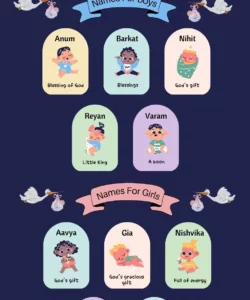In the year 1950, amidst the post-war era, certain boy names reigned supreme in popularity. Parents sought names that reflected strength, virtue, and traditional values, resulting in a distinct naming landscape that has shaped generations since. Join us as we delve into the 100 most common boy names of that time, exploring their origins, meanings, and the reasons behind their enduring appeal.
Origins and Meanings: A Tapestry of History and Traditions
The most popular boy names in 1950 drew inspiration from a diverse tapestry of origins. Many names had Biblical or religious roots, reflecting the deep-seated faith of the era. Michael, the archangel known for his strength and courage, topped the list, while John, the beloved disciple of Christ, held a strong second place.
Other names originated from ancient languages and cultures. Greek names like George (meaning “farmer”) and Nicholas (“victorious people”) conveyed strength and virility. Latin names such as Robert (“bright fame”) and Edward (“rich guardian”) evoked a sense of nobility and protection. These names carried the weight of history and tradition, connecting newborns to the legacy of past generations.
Nature-inspired names also held a special place. James (“supplanter”) represented the strength and resilience of a river, while William (“resolute protector”) evoked the protective qualities of a fortress. These names connected boys to the natural world, instilling a sense of wonder and appreciation.

Popularity Trends: Reflecting Cultural Values
The popularity of these names reveals insights into the cultural values of 1950s America. Strength and virtue were highly prized, as evidenced by the prevalence of names like Michael, John, Robert, and Edward. Parents sought names that would instill qualities of courage, leadership, and integrity in their sons.
Tradition played a significant role as well. Biblical and historical names were seen as timeless and meaningful, connecting newborns to a rich tapestry of faith and culture. Names like Joseph, David, and Thomas echoed the stories of great men from the past, inspiring boys to emulate their noble deeds.
At the same time, there was a growing trend towards unique and distinctive names. Parents sought to give their sons names that would stand out from the crowd, reflecting their individuality and aspirations. Names like Brian, Kevin, and Keith gained popularity during this period, offering a fresh alternative to the more traditional choices.
Conclusion
The 100 most common boy names of 1950 provide a fascinating glimpse into the cultural values and naming practices of that era. These names, drawn from diverse origins and meanings, reflected the desire for strength, virtue, and tradition. They have left an enduring legacy, shaping the naming landscape for generations to come.
As we look back on these names today, they serve as a reminder of the hopes and aspirations of parents in a time of great change. They are a testament to the enduring power of tradition and the enduring desire to give our children names that will carry them proudly throughout their lives.



